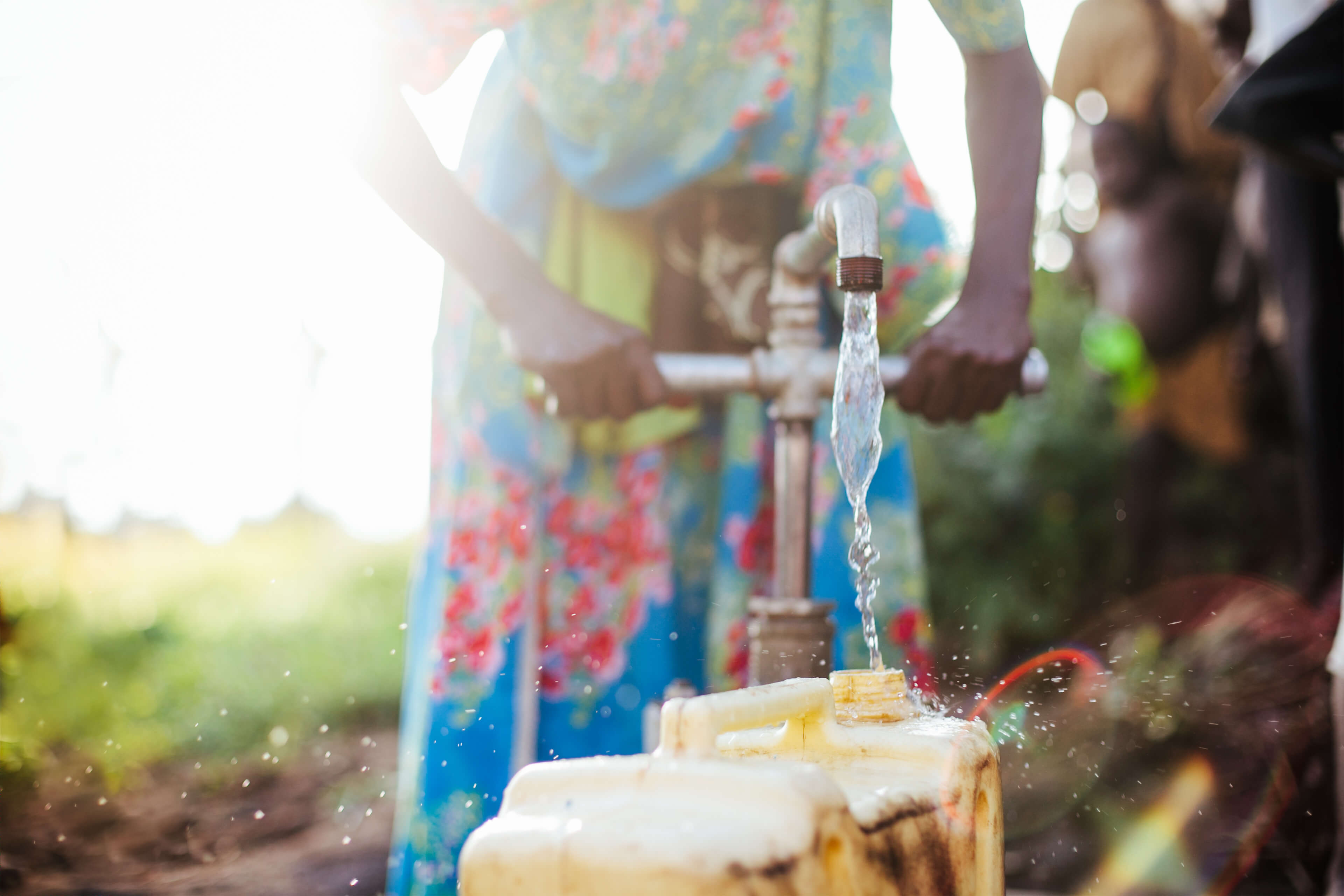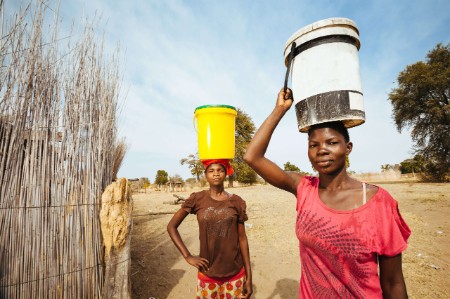To solve a problem on such a scale requires new ways of thinking – solutions that can work locally, yet still be scalable.
While their ultimate goal was to increase the availability of clean drinking water, the Welschs decided to focus not just on the problems of poor infrastructure and water supply, but also on supporting local entrepreneurs and job creation. By 2020, they aim to provide a million people with access to safe drinking water and help create 1,000 locally-owned businesses and 8,000 jobs.
Galen Welsch explains that the idea was to “combine the need for affordable access to water with people’s desire to control their own destinies and build a more prosperous future for their families and communities. That has to be the most sustainable solution to the water crisis.”
A self-funding solution
With this in mind, in 2012 the pair launched Jibu (“solution” in Swahili), a low-profit limited liability corporation (L3C) that provides African entrepreneurs with the equipment, distribution and business support they need to run their own franchises supplying clean, affordable water.
A ‘hybrid’ form of incorporation, bridging non-profit and for-profit worlds, L3Cs combine the legal and tax flexibility of a traditional LLC with a legal obligation to be mission-driven. Their primary goal is not to maximize income but to perform a socially beneficial role – but the ability to make a small profit helps ensure sustainability and attract investment.
Based in highly visible street-front shop locations, the franchises Jibu has helped set up use advanced solar-powered filtration equipment to purify locally sourced water sold at a fraction of the price of the commercially bottled equivalent. Each franchise acts as a localized water treatment plant, serving a 2km radius, and transforming the supply of clean water.
This innovative business model puts local entrepreneurs in control, adding a virtuous cycle of job and wealth creation to the social and health benefits of access to clean water.

Focusing on finance
Early trials – with many of the first franchisees selling up to five times the amount needed per day to break even – have proved the concept works. The next challenge was how to scale the model, both building the business and its impact. This required robust financial planning.
The first challenge was to refine Jibu’s financial and operational controls. “With a legacy of 11 different systems being used to capture financial and non-financial data, we clearly needed to streamline, but previous attempts to introduce common point of sale (POS) and accounting systems hadn’t taken hold,” says Welsch. “The most important thing for us was to end up with one system – one that would be accepted and used consistently by everyone.”
Making the most of data
EY consultant Alex Paur, who’d conducted academic research into sustainable water investment models, worked with Jibu to understand the specific needs and challenges facing the organization and its franchisees. It soon became clear that things needed to be kept simple.
“In the beginning, that was as basic as creating an Excel template to capture important inventory data – like numbers of empty, full and damaged bottles,” says Welsch. This could then power a dashboard to help manage supply chains.
This data analysis, as simple as it was, proved invaluable in identifying ways to optimize production flow and costs.
Building the skills to help scale the model
Without people who can quality-control and interpret data, few insights are revealed. So Alex led a project to train franchisees in bookkeeping, reporting and using Jibu’s new point of sales system.
Addressing the skillset and experience gap, and executing detailed, consistent reporting and operational procedures across the business, has helped Jibu take their initial proof of concept and scale their model very effectively.
Welsch says: “We now have reliable, real-time data on the performance of all our stores. That’s not only empowering our franchisees to manage their businesses more effectively, but it’s also helping us, as a leadership team, to communicate with our stakeholders and secure further investment.”
The impact: better business, stronger Africa
Given its ability to develop a business model that combines profit and purpose, Welsch predicts a huge explosion in similar business models designed to make a positive difference: “Businesses are realizing the importance of making social impact core to their missions.”
As of July 2016, Jibu had over 160,000 customers, with new franchises opening across Rwanda, Uganda and Kenya every month. By 2020, the incidence of water-borne disease in the communities Jibu serves is expected to be cut by 25%. If other regions adopt the model, the positive impact on the health and economies of some of the world’s poorest regions will be considerable, and the hope of a much more prosperous and secure future for East Africa will become more real.
Summary
A low-profit limited liability corporation (L3C) in East Africa could hold promise for other purpose-driven local entrepreneurs.


